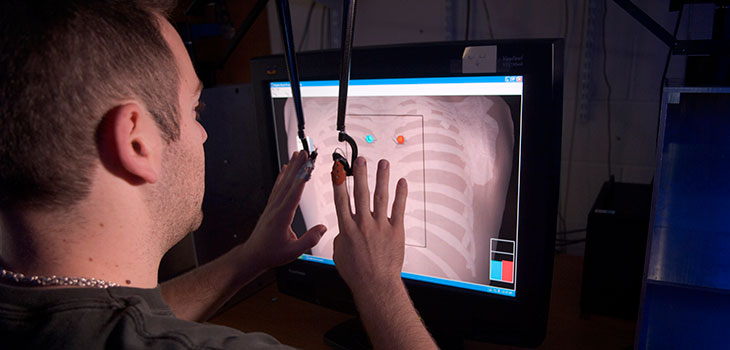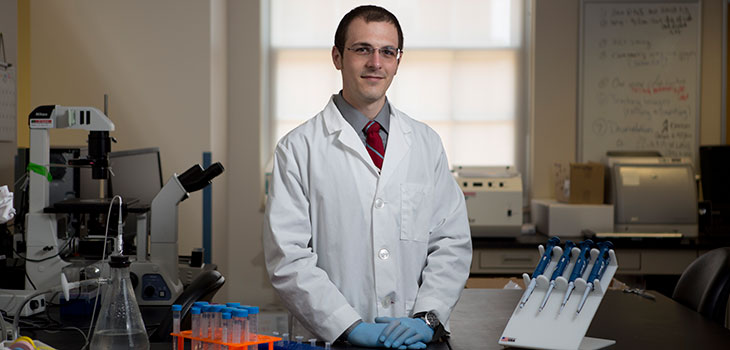About Biomedical Engineering
Biomedical engineers collaborate with clinicians and scientists to improve the human condition through new devices, diagnostics, and technologies in health care. Our researchers pursue biomedical engineering advances through cellular and biomolecular engineering, biomaterials, and biomedical information processing. Whether you want to develop therapeutics, diagnostics, biomaterials, or software to predict drug protein interactions or manage large volumes of biological data, you can join the growing biomedical engineering field that touches our lives every day.
Ohio University’s biomedical engineering studies are a cross-disciplinary effort between the Russ College of Engineering and Technology, the Heritage College of Osteopathic Medicine, the College of Health Sciences and Professions, the College of Arts and Sciences, and the Edison Biotechnology Institute.
History
Since 2007, dozens of students have completed the program and gone on to further academic study or careers in the private sector and public health organizations. Many of our graduates shared their research discoveries with world-class researchers here on campus and at conferences across the country.


